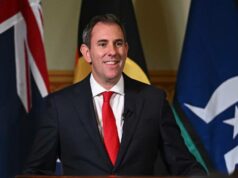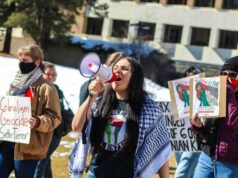Unemployment To Increase From 5.2% To 8% In Australia

Employer group the Council of Small Business Organization’s Australia and the United Workers Union both say hospitality workers and businesses will run out of money within weeks as coronavirus bites into spending.
Hospitality workers and businesses won’t be able to pay the rent within weeks without urgent action to get money into their pockets, unions and employers warn.
Employer body the Council of Small Business Organisations Australia (Cosboa) and the United Workers Union both say hospitality businesses are in crisis and have already started closing and sacking people due to the coronavirus pandemic.
Piling pressure on the Morrison government to move more quickly in fighting the economic effects of the pandemic, both Cosboa and the UWU say laid-off workers need Centrelink benefits to start flowing immediately as rent and mortgage payments loom for households suddenly deprived of casual work and the income that comes along with it.
“With some workers already facing eviction, we could very easily see some of our members sleeping in their cars,” UWU spokeswoman Karma Lord said.
Sole traders also need immediate income support, Cosboa chief executive Peter Strong told Guardian Australia.
“We don’t want to start a panic, but it’s not called a crisis for no reason,” he said.
Economists warned that Australia’s economy was particularly vulnerable to an inevitable global recession due to its highly casualised workforce. The Victorian premier, Daniel Andrews, said his government was planning to make “survival” payments to keep virus-ravaged businesses afloat.
Australia’s sharemarket dived again on Wednesday, falling 6.43% and wiping out gains made on Tuesday.
Lord said the union was “hearing all across the hospitality industry that workers’ shifts are slashed, people are losing their jobs and some businesses are already closing”.
She said the new ban on gatherings of more than 100 people would make things even worse.
“We know that 79% of hospitality workers are casual and casuals are the first people on the chopping block and almost invariably, they have nothing to fall back on,” she said.
Unemployed Melbourne hospitality worker Tara Cairnduff, a long-time member of UWU division Hospo Voice, said laid-off workers were using a template she had created to write to their landlords and ask for a delay in paying the rent.
She said she was also working on a version for hospitality operators to send to commercial landlords.
“Heaps and heaps of people have needed to use it and used it and spread it around,” she said.
She said that on Facebook hospitality support pages “there are thousands and thousands of people closing their businesses”.
She said rent and mortgage payments needed to be dramatically cut or frozen during the crisis to prevent people being tipped on to the street, and Centrelink needed to dramatically improve its service levels.
Strong said the agency needed to be able to get money into people’s bank accounts “within a week or two” of them making an application.
Cosboa, like most employer bodies, also supports raising the Newstart rate by $95 a week.
Services Australia, which runs Centrelink, did not answer Guardian Australia’s questions about waiting and processing times.
“We are expecting an increase in members of the community seeking assistance from us during this time and we are prepared to respond accordingly,” spokesman Hank Jongen said.
Analysts at investment bank UBS say retail landlords will probably have to give rent holidays, which will put most pressure on debt-laden shopping centre operators Vicinity and Scentre.
Strong predicted the savage cuts to flights announced by Qantas and Virgin Australia over the past few days would also cost more jobs.
“You’re going to have people in the supply chain to the airlines, cleaners and caterers.
“They’re going to go under if they have no other business.”
As the economic fallout from the coronavirus pandemic emptied city streets, the Victorian premier said he would soon detail a “survival package” including cash handouts for businesses crushed by government bans on mass gatherings, a dive in restaurant bookings, closed city office towers and other effects of the crisis.
“We have many businesses who have zero income,” Andrews said.
“Offering them a tax cut doesn’t necessarily do it. If we are going to have some businesses close their doors, if we want to avoid them collapsing altogether and if we want to make sure they are there at the end of this virus, we need to be providing that sort of emergency capital, that sort of emergency cash.”
In a new report on Wednesday, ratings agency S&P said a recession across the Asia-Pacific was “guaranteed” and recovery would be slower than previously hoped.
Asia-Pacific chief economist Shaun Roache said the Australian economy was “particularly vulnerable” to mass sackings because many people already weren’t working as much as they would like.
“The underemployment problem is likely more acute in the accommodation and catering sectors, which account for over 7% of total employment,” he said.
“Of these jobs, over 60% are part time. While this give employers flexibility in reducing hours, the impact on workers can be brutally swift. In turn, this will hit consumer confidence and household income and spending.”
UBS predicts Australia will fall into recession this year and unemployment will soar from its current rate of 5.2% to as much as 8%.



